ANAVI Technology
Home Automation
Mouser Electronics
ANAVI Light pHAT
Make your Raspberry Pi bright and shiny with an RGB LED strip and ANAVI Light pHAT!
Funding ended on Jan 16, 2018 at 03:59 PM PST.
ANAVI Technology
Home Automation
Mouser Electronics
Funding ended on Jan 16, 2018 at 03:59 PM PST.
ANAVI Light pHAT is an open source hardware, Raspberry Pi add-on board for controlling a 12 V RGB LED strip. Furthermore, the board supports sensors for light, temperature, humidity, gesture recognition, and motion detection.
ANAVI Light pHAT is fully compliant with the popular open source home automation platform, Home Assistant. Thanks to ANAVI’s open source application, the ANAVI Light pHAT can be easily integrated into Home Assistant as an MQTT JSON Light component.
ANAVI Light pHAT was designed using the free and open source application, KiCAD. All source files are available in our GitHub repo. All boards will be manufactured locally in Plovdiv, Bulgaria. Getting started with the add-on board is easy, no soldering is required. A comprehensive user’s manual with exact steps for using ANAVI Light pHAT on Raspberry Pi running the Raspbian GNU/Linux distribution will be provided.
ANAVI Light pHAT is fun and easy to use. No previous experience is required. You don’t need to be a tech whiz to use it. The exact steps for getting started are described in the user’s manual. Use your bare hands to assemble it and a screwdriver to connect the RGB LED strip.
ANAVI Light pHAT is fun and easy to use. No previous experience is required. You don’t need to be a tech whiz to use it. You can assemble it without any tools, while only a screwdriver is needed to connect your RGB LED strip.
ANAVI Light pHAT works with Raspberry Pi 3, Raspberry Pi 2, Raspberry Pi A+, Raspberry Pi B+, Raspberry Pi 0, and Raspberry Pi 0 W.
ANAVI Light pHAT officially supports a PIR motion sensor as well as the following I2C modules with:
You can also attach any other I2C sensor, but you will have to take care of their software integration.
The PIR motion sensor allows you to turn on the lights automatically when someone is passing by. The sensor for temperature and humidity could be used to make a weather station as a secondary function of your Raspberry Pi. The gesture detection sensor is a great addition for defining custom hand gestures for controlling the lights or just making a modern version of Aladdin’s magic lamp.
The following pledge/kits are available:
| ANAVI Light pHAT | Starter Kit | Advanced Kit | Developer Kit | Family Kit | ||
|---|---|---|---|---|---|---|
| ANAVI Light pHAT | Yes | Yes | Yes | Yes | Yes (x4) | |
| 1M 12 V RGB LED strip | No | Yes | Yes | Yes | Yes (x4) | |
| Light Sensor (BH1750) | No | Yes | Yes | Yes | Yes (x4) | |
| Temperature and Humidity Sensor (HTU21D) | No | No | Yes | Yes | Yes (x4) | |
| RGB and Gesture Sensor(APDS-9960) | No | No | Yes | Yes | Yes (x4) | |
| PIR Motion Sensor | No | No | No | Yes | Yes | |
| USB to Serial Debug Cable | No | No | No | Yes | Yes |
ANAVI Light pHAT is included in all pledges. Raspberry Pi and 12V Power Supply are NOT* included in any of the pledges.*
| ANAVI Light pHAT | Standard LED Controller | |
|---|---|---|
| 12 V RGB LED strip | Yes | Yes |
| IR Remote Control | No | Yes |
| Raspberry Pi Compatibility | Yes | No |
| Internet Connectivity | Yes | No |
| Sensors | Yes (plug and play) | No |
| Home Assistant Integration | Yes | No |
| Open Source | Yes | No |
All kits include 1M 12V RGB LED strip with 30 LEDs (size 5050), IP 20 and power consumption of 7.2W.
You need a 5 V USB power supply for Raspberry Pi and a 12 V power supply with a standard 2.1x5.5mm DC jack for your light strip. Select a 12 V power supply with sufficient output current and power depending on the length and specifications of your RGB LED strip.
No, the main feature for controlling RGB LED strip requires a 12V power supply.
ANAVI Light pHAT has been tested using 12 V power supplies from SUNNY Computer Technology Europe such as SYS1530-1212-W2E.
Make sure that you are using a 12 V power supply from a trusted supplier. Cheap, untested power supplies can be risky and unreliable.
We were unable to source power supplies with universal plugs for US/EU/UK at an acceptable price, and power needs will vary based on application. Nowadays, 12 V power supplies with 2.1x5.5 mm DC jack are a commodity item, therefore you should be able to easily find a suitable unit online or at your local electronics store.
Yes, you may install popular open source platform Home Assistant on your Raspberry Pi and follow the exact steps to integrate ANAVI Light pHAT.
Yes, ANAVI Light pHAT is an open source hardware project powered and created with free and open source software.
The board is designed with the free and open source electronics design automation suite KiCAD. The schematics and the PCB design are available at GitHub under CC BY-SA 4.0 license.
Open source sample applications written in the C programming language are also provided. ANAVI Light pHAT can be easily integrated into the open source platform Home Assistant as an MQTT JSON Light component using the ANAVI open source daemon that communicates over the MQTT protocol.
Buy any of the available perks, get your hands on the ANAVI Light pHAT, contribute to our GitHub repositories, and become part of our open source community!
To ensure consistently high quality, ANAVI Light pHAT has a green solder mask and a gold surface finish. All printed circuit boards for the ANAVI Light pHAT will be manufactured at a local factory in Plovdiv, Bulgaria, EU. The fabrication includes a procedure called panelization which groups together a number of PCBs on a larger board called a "panel".
After that, the resistors, transistors, and capacitors will be mounted on each board in the panel using surface-mount technology (SMT). The next, and most time consuming, step is the through-hole technology (THT) for hand-soldering of components. For this step, in order to save time, the boards will be divided into several batches. Finally, all boards from each batch will be carefully manually tested on a Raspberry Pi, packaged, and shipped according to the schedule for each pledge.
This crowdfunding campaign offers ANAVI Light pHAT with free worldwide shipping via the registered airmail service of the Bulgarian Post. All orders will be shipped from Plovdiv, Bulgaria. Your pledge will be packaged in an individual cardboard box and padded envelope for extra safety during transport. A tracking number will be provided as soon as the order has been shipped.
ANAVI Light pHAT is a stable, open source hardware product. We have already manufactured a small-run batch to ensure that everything works fine. Although this significantly reduces any risks, mass production still depends on factories and suppliers. Availability of parts can also be an issue. In order to provide ANAVI Light pHAT at the best price, we are working with reliable suppliers and a trusted local factory.
We have experience successfully delivering projects on time and even ahead of schedule from our previous crowdfunding campaign for ANAVI Infrared pHAT. We are confident that we can again arrange successful mass production on time. However, any delays will be communicated to backers promptly through regular updates.
Our crowdfunding campaign has a very modest goal of just $1, but if we raise:
"He’s created a Zero-sized ‘pHAT’ that allows you to control 12V RGB LED strips from your Raspberry Pi."
"Based on my past experience with his boards, documentation is usually good and easy to follow. Just like the other boards, Light pHAT was design with KiCAD, and you’ll find the hardware design files on Github."
"Un projet sympa pour piloter un ruban de LEDs à partir d’un Raspberry Pi et gérer des capteurs I2C."
Produced by ANAVI Technology in Plovdiv, Bulgaria.
Sold and shipped by Crowd Supply.
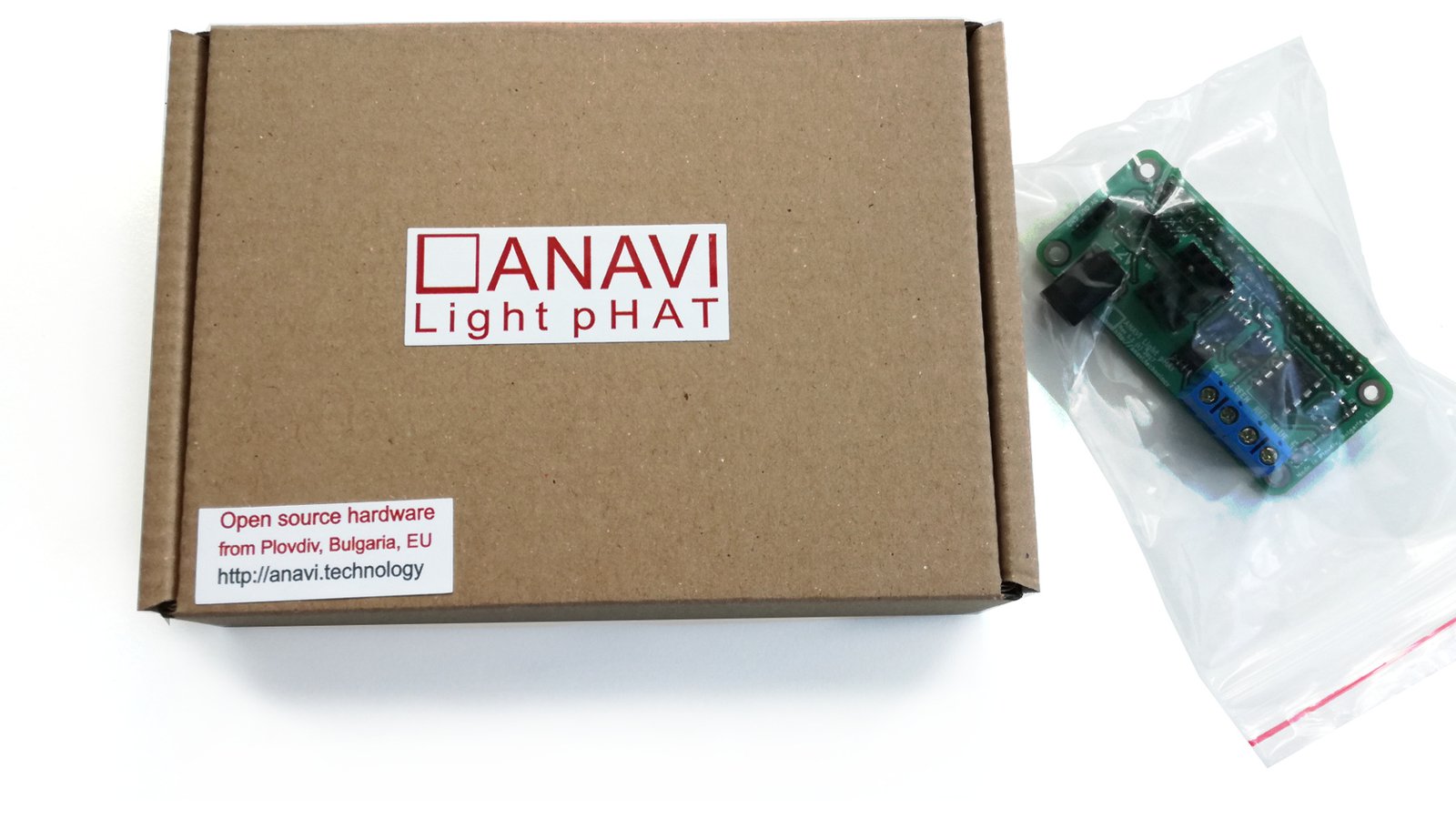
Open source hardware Raspberry Pi add-on board for controlling 12V RGB LED strips. Includes one ANAVI Light pHAT (1).
Want to buy this item? Check the current project page for the latest information.
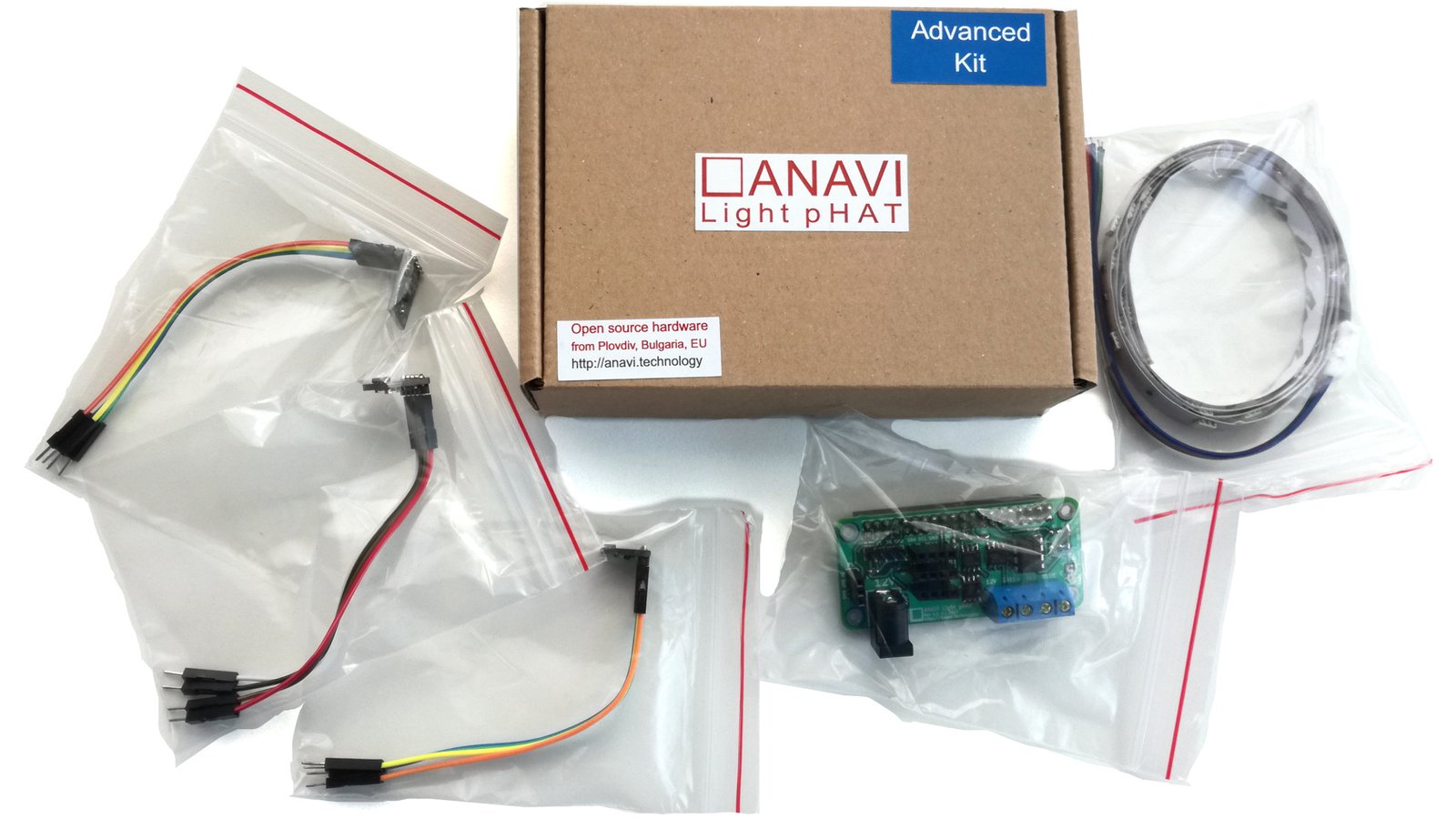
The kit for awesome home automation. Includes ANAVI Light pHAT, 1m RGB LED strip with LED connector as well as sensor modules for light (1), gestures & color recognition (1), temperature & humidity (1).
Want to buy this item? Check the current project page for the latest information.
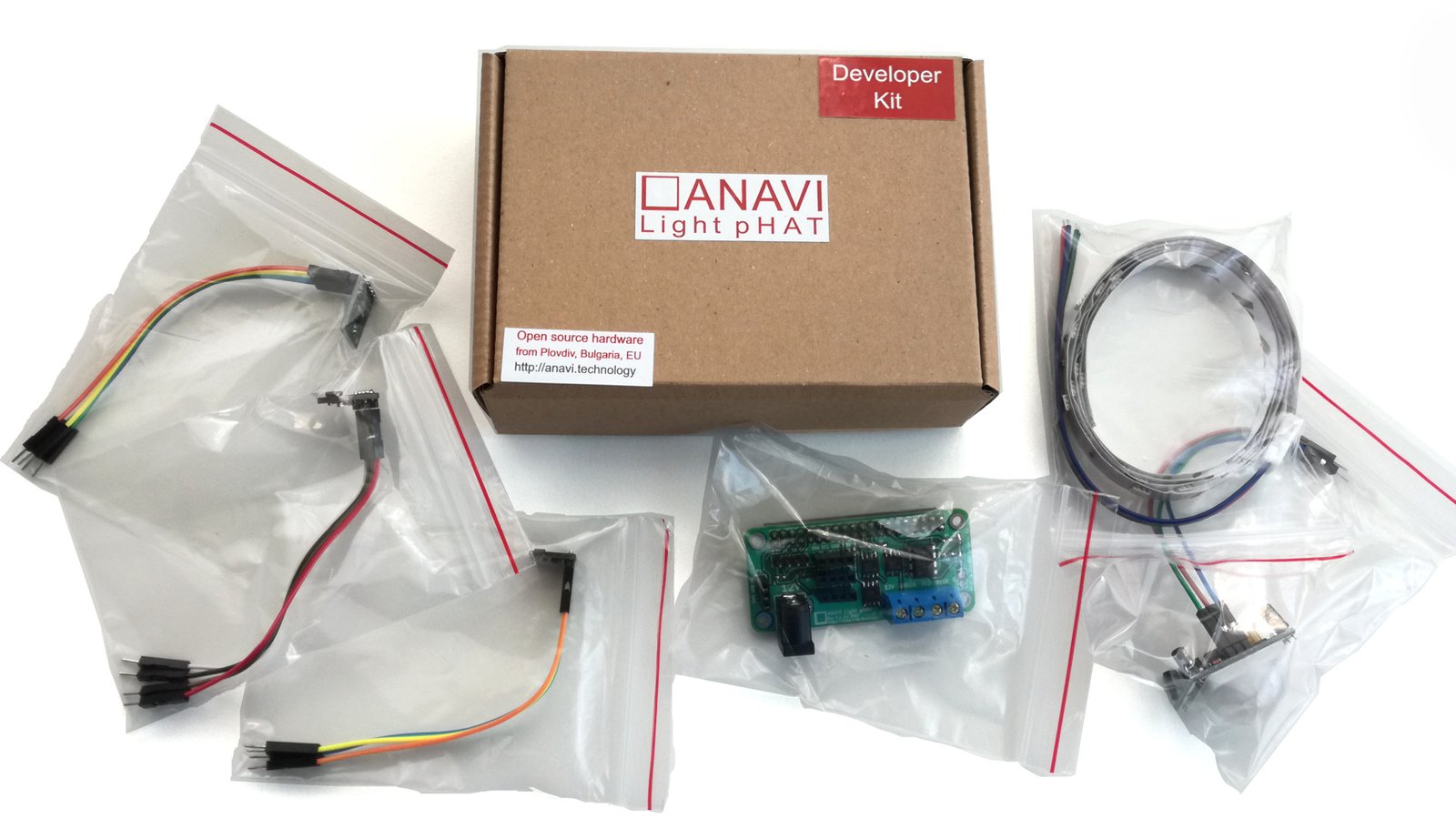
Everything a developer needs to master lightning with a Raspberry Pi. Includes all sensor modules: PIR motion sensor (1), light (1), gestures & color recognition (1), temperature & humidity (1). Also comes with USB-to-serial debug cable.
Want to buy this item? Check the current project page for the latest information.
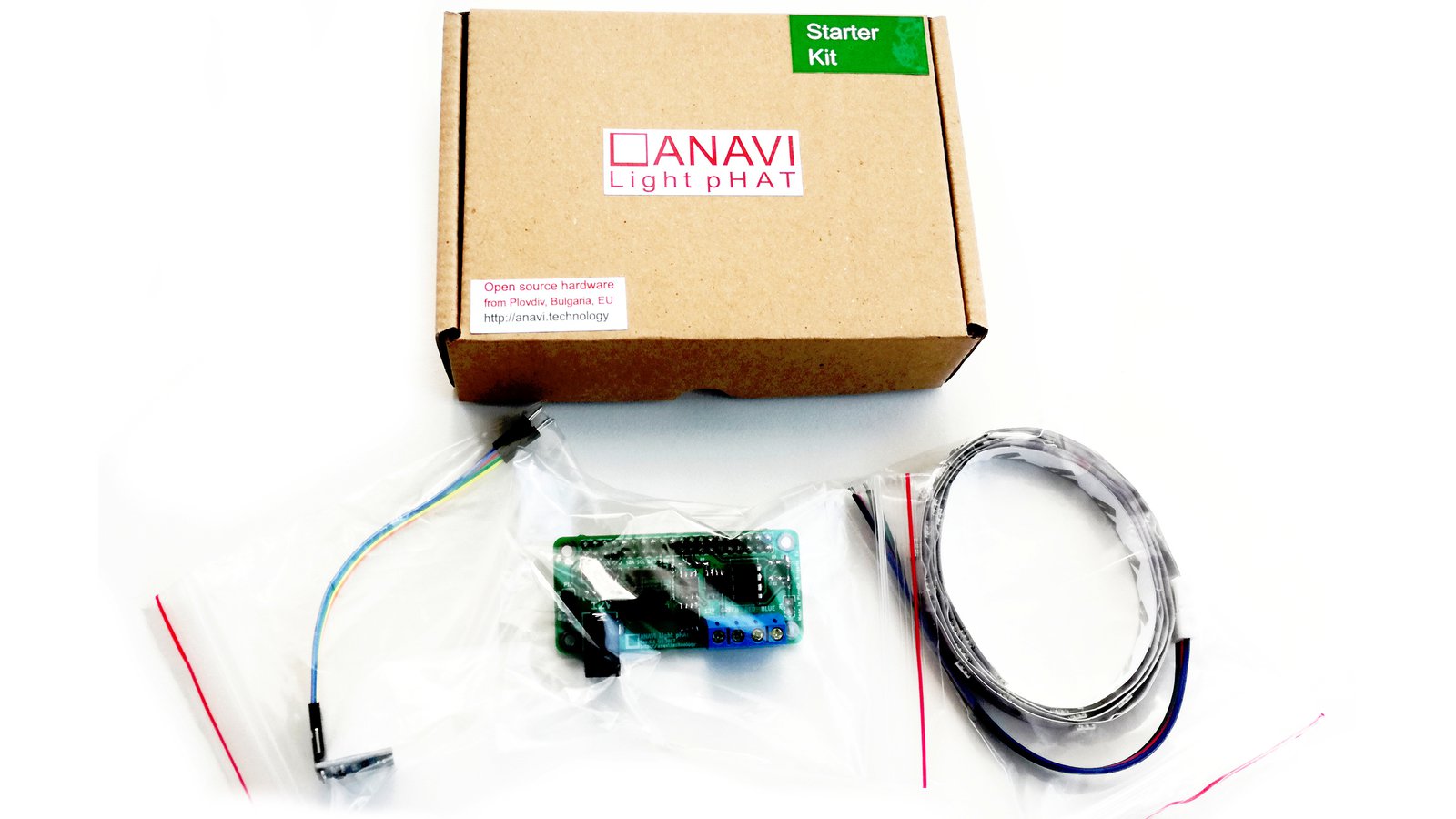
The perfect kit for getting started. Includes one ANAVI Light pHAT (1), light sensor (1) and 1 meter RGB LED strip with a LED connector (1).
Want to buy this item? Check the current project page for the latest information.

The ultimate lightning solution for Raspberry Pi that features a developer kit and three advanced kits with a huge discount.
Want to buy this item? Check the current project page for the latest information.
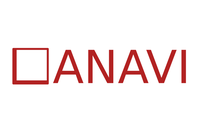
· AnaviTechnology · AnaviTechnology · anavi.technology
Open source hardware created and powered by free and open source software